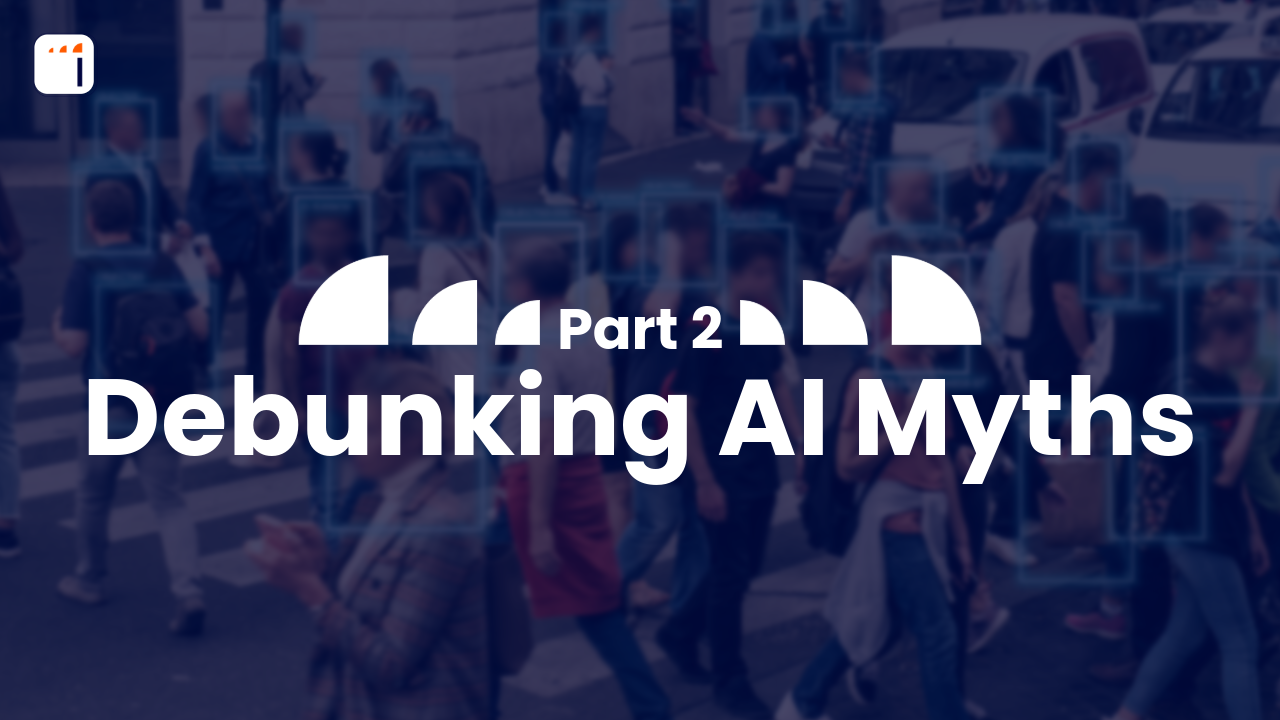As AI continues to advance at an incredible pace, it is reshaping various industries and altering our everyday experiences. However, this rapid evolution has led to a number of myths and misconceptions. At Illumia Labs, we are dedicated to pioneering AI technology and addressing these misunderstandings. In part two of this blog post series, we will tackle the last five of ten prevalent myths about AI and shed light on the realities behind them.
Myth 6: AI is Only for Tech Experts
AI is becoming increasingly accessible to non-experts through user-friendly tools and platforms. Businesses and individuals can leverage AI without needing deep technical knowledge, thanks to advancements in AI intuitive usability. According to Gartner, by 2025, over 50% of organizations will have implemented AI platforms that enable non-experts to develop AI solutions. This shift is further supported by AI integration in everyday applications, such as smart assistants in smartphones and AI-driven analytics in business software, which streamline operations and enhance decision-making processes. Many AI platforms today provide intuitive interfaces and comprehensive support to help users from various backgrounds integrate AI into their operations effortlessly. The widespread availability of these user-friendly AI tools is empowering more people to harness the power of AI, driving innovation and efficiency across diverse fields.
Myth 7: AI is Too Complex for Everyday Use
AI is already being integrated into everyday applications, from social media, to virtual assistants to recommendation engines. AI is enhancing user convenience and efficiency on these platforms through analyzing user data, optimizing content delivery, and interpreting voice commands to create a seamless experience that streamlines everyday tasks. According to a PwC report, AI could contribute up to $15.7 trillion to the global economy by 2030, with a significant portion of this value stemming from its integration into consumer applications. This widespread integration demonstrates how AI is becoming a key part of daily life, making technology more responsive, intuitive, and reliable.
Myth 8: AI is Infallible
The Truth:
The outputs of AI systems should always be taken with a grain of salt as they can make mistakes, particularly if they are trained on biased or incomplete data. Recent studies, such as the research done by Emilio Ferrara, have shown that AI algorithms can perpetuate existing biases present in their training datasets, leading to skewed or unfair outcomes. To mitigate these risks, AI systems require rigorous testing and validation processes to ensure accuracy and reliability. For example, the European Union’s General Data Protection Regulation (GDPR) mandates transparency and accountability in AI decision-making. Implementing these measures helps ensure that AI systems provide accurate, reliable, and ethical outputs, minimizing the risk of errors and fostering trust in AI technology systems.
Myth 9: AI is Too Expensive for Small Businesses
While advanced AI systems can initially appear costly, numerous affordable solutions exist that can be scaled to fit various budget constraints. Businesses across industries can benefit from AI by starting with smaller, targeted applications that promise a significant return on investment. According to McKinsey, AI applications across all industries could create between $2.6 trillion to $4.4 trillion in value annually by 2030, showcasing AI’s potential for economic growth and impact across diverse sectors and business sizes. AI’s adaptability and affordability make it a valuable tool for driving efficiency and innovation.
Myth 10: AI is Just a Passing Trend
AI is firmly established as a transformative force with ongoing advancements and widespread applications across numerous fields. In healthcare, AI facilitates faster and more accurate diagnoses through image analysis and predictive modeling, potentially saving lives and reducing healthcare costs. Corporate companies benefit from AI-driven algorithms for risk assessment, soft skills training, and enhancing efficiency and productivity with tedious tasks. Educational institutions are also adopting AI for personalized learning experiences. The global AI market is projected to grow exponentially, expected to race past 826 billion U.S. dollars in 2030, driven by continuous innovation and expanding applications across diverse sectors. AI’s ability to drive innovation, improve efficiency, and provide solutions for complex challenges ensures its enduring presence and impact in shaping the future of technology and society.
Leveraging AI to Enhance Human Training with Illumia Labs
Our commitment to innovation and user-centric design ensures accessible, intuitive AI solutions for diverse industries. We prioritize data privacy and security, adhering to rigorous testing and validation processes to enhance the accuracy and reliability of our AI systems. With scalable solutions tailored to businesses of all sizes, we offer technologies such as digital twins and AI-enhanced simulations. Illumia Labs remains dedicated to harnessing AI’s potential to drive lasting advancements in training and beyond, ensuring our solutions empower users and maintain the highest standards of performance and security.
Conclusion
AI is a transformative technology with immense potential, but it is important that public discourse around it does not promote misinformation. By understanding the truths behind these myths, we can better appreciate AI’s capabilities and responsibly integrate it into our lives and industries. If you haven’t read part one of this blog series, make sure to check it out to learn the truths behind more public misconceptions surrounding AI.
For more information on how Illumia Labs uses AI to revolutionize training contact us today!




